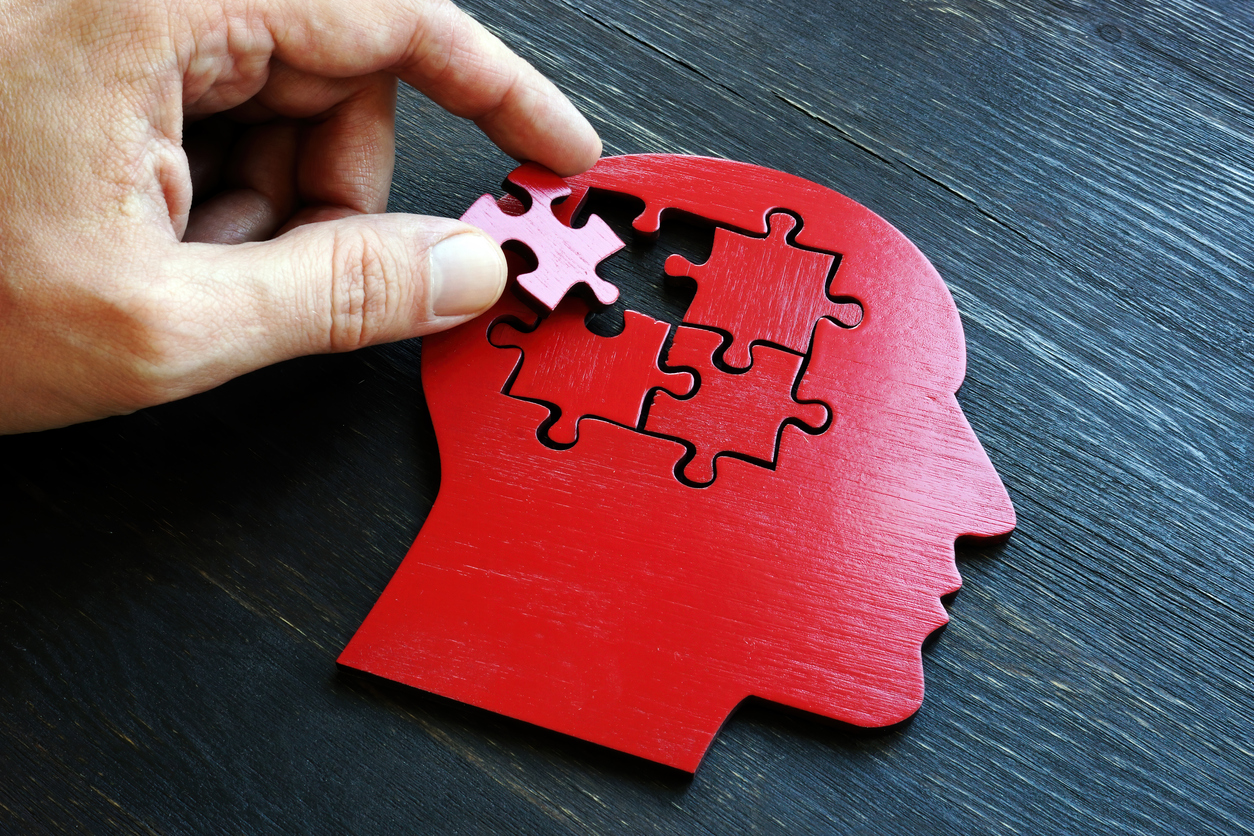When we think about Alzheimer’s or any other dementia, many of us think first and foremost about memory loss. But over time, dementia affects so much more than just memory. Depending on the type and the individual, it can impact every aspect of their independence.
If your loved one has dementia, HopeHealth clinical educator Lisa Wasson, RN, CHPN, CMDCP, shares what to keep in mind at each stage — and how to create moments of connection along the way.
Note: This resource draws on the 6 GEMS® State Model, which categorizes stages of dementia by different gemstones.
> Connect with HopeHealth Circle of Love dementia care
Early stage dementia: “Diamonds”
“Diamonds are still sharp, capable and clearly themselves, but they’re resistant to change,” says Lisa. “They’re masking the abilities they’re losing by following routines — and when something doesn’t follow the routine, it throws a wrench in the whole day.”
At this stage, the person may:
- Cling to habit and routine
- Rely on external memory tools like notes and marker boards
- Misplace things and blame others
- Become especially money-focused
- Struggle to concentrate on a conversation or follow instructions
To connect:
- Encourage your loved one to continue participating in and even leading activities where they can shine, like a knitting circle or rosary group.
Early-to-mid stage: “Emeralds”
“Emeralds are further into mild cognitive impairment,” says Lisa: “They’re beginning to have difficulty finding words. They’re beginning to time travel. But they still want to be independent and active.”
At this stage, the person may:
- Struggle to remember certain words, especially the names of people, places and things
- Struggle to express themselves and organize their thoughts
- Have trouble following directions
- Have trouble handling money
- Be forgetful, particularly forgetting recent events
- Begin to show poor judgment
- Begin to time travel
- Begin to withdraw from social life
To connect:
- Choose from these activities. Meaningful activities help your loved one feel more productive, independent and connected.
Middle stage: “Amber”
As dementias like Alzheimer’s advance to the “amber” stage, they begin to have much more obvious effects on memory, communication and behavior. But these individuals can still experience moments of true beauty and connection.
“Try to adjust your perspective. Look at what abilities your loved one has remaining, versus what they’ve lost,” says Lisa.
At this stage, the person may:
- Often be confused or disoriented
- Feel like they are living in the past
- Struggle to express themselves and connect with others
- Struggle to recognize friends and family members
- Show changes in personality
To connect:
- Follow these tips for communication. “Ambers are often caught in a moment in time,” explains Lisa. “We want to ask questions so we know where they are on their timeline. That’s where we need to be also.”
> Read: Support for the dementia journey: 4 programs for patients and caregivers
Mid-to-late stage: “Rubies”
“Rubies are the red stoplight,” says Lisa. “This is when things start to really halt — language, motor skills, balance. But these individuals have hidden depths. Often, they can still sing, hum, sway and dance.”
At this stage, the person may:
- No longer recognize family and loved ones
- No longer be able to care for themselves
- No longer be able to carry on a conversation
- Lose fine motor skills
- React with distress when their needs are not immediately met
To connect:
- Try these music activities. “Rhythm and music are held onto right until the end of dementia,” says Lisa.
> Read: What palliative care means for Alzheimer’s and dementia
Late stage dementia: “Pearls”
“With pearls, the person is hidden in a shell — but they’re still there,” says Lisa. “Moments of connection take time and will be short. But they still need that one-on-one connection.”
At this stage, the person may:
- Be ruled by their reflexes
- Be immobile most of the time
- Keep eyes closed even when not asleep (to limit visual stimulation, which has become overwhelming)
To connect:
- Focus on being present. “Slow down. Sit next to your loved one, and position yourself where they can see your face. Allow for any moment of connection,” says Lisa.
Dementia affects everyone differently.
There are many types of dementia, and each impacts the brain a bit differently — so the above is just one example of how it may progress.
“Not every person will necessarily have the same symptoms, or in the same order,” says Lisa.
So if your loved one has Alzheimer’s or another dementia, and you’re wondering what to expect, your best guide is always their doctor. They can share the specifics of your loved one’s diagnosis.
In the meantime, reach out to our Circle of Love Dementia Care Program for caregiver support groups, free community resources and more.
For more information about Alzheimer’s & dementia care, contact us at (844) 671-4673 or Info@HopeDementia.org.

